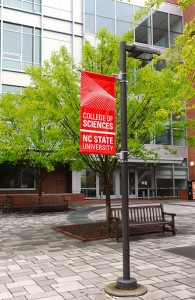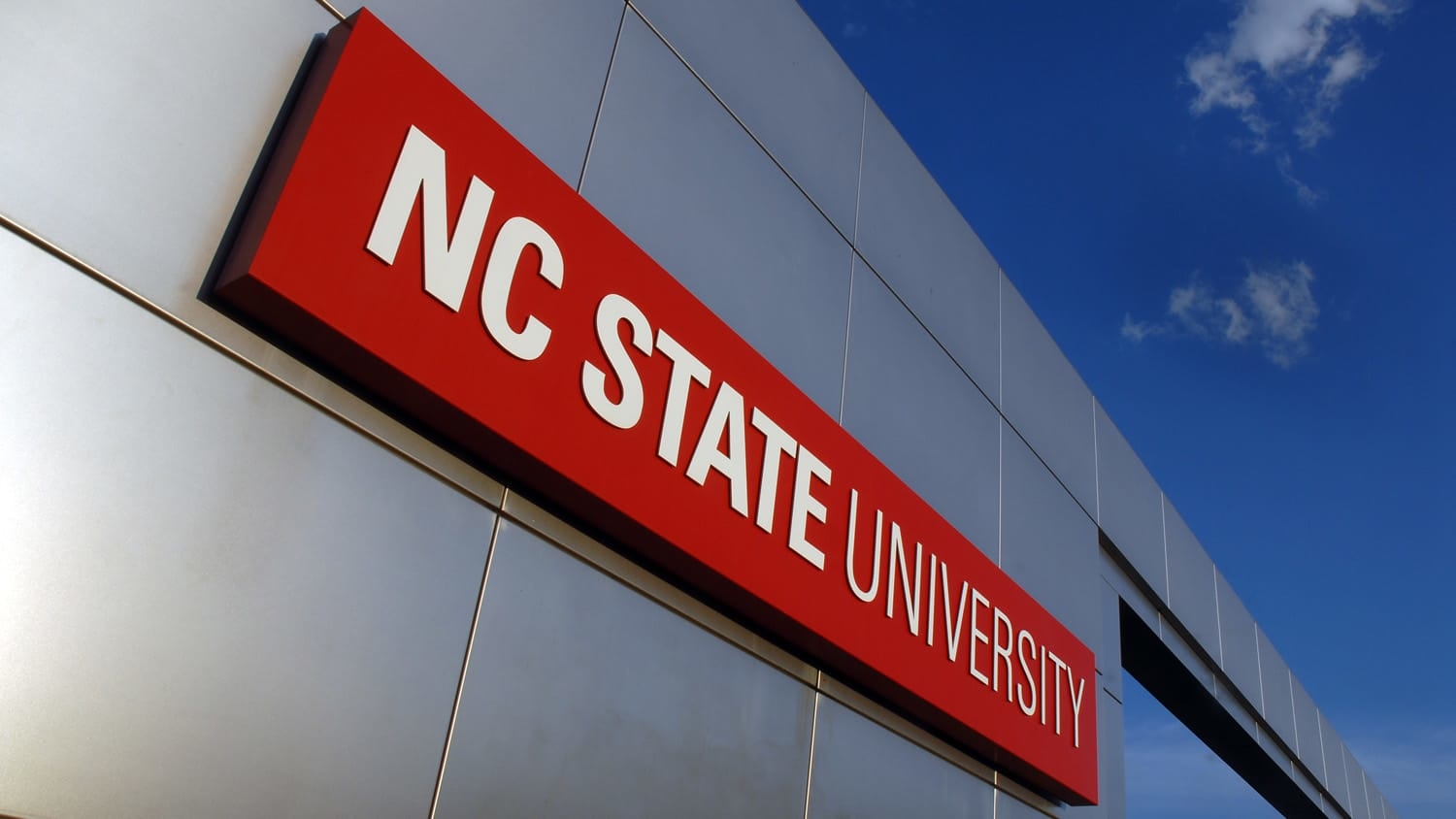The Future of Science
The grand challenges of the world are messy.
Energy shortages, illness, hunger, climate change – their causes and effects sprawl across math, biology, physics, agriculture, medicine and a vast array of other fields.
Researchers have to be as flexible as the problems they aim to solve. At NC State, the launch of a new college allows the researchers of today and tomorrow to do just that.
As of July 1, the university’s research, education and outreach efforts in the physical, chemical, mathematical, statistical, biological and earth system sciences are united in the College of Sciences, a collection of six departments, 4,000 students and 575 faculty, staff and postdoctoral researchers. The new college, which combines the programs of the College of Physical and Mathematical Sciences with several of the biological sciences programs from the College of Agriculture and Life Sciences, will be NC State’s third-largest college.
“Some of the most pressing scientific issues of today lie at the intersection of the mathematical, computational, physical and biological sciences,” said Chancellor Randy Woodson. “Bringing these disciplines together under a single organizational umbrella is a transformative change that better positions NC State to advance these issues through multidisciplinary research, teaching and service.”
We’re looking for big, bold work (in the College of Sciences) that will bring massive data and modeling to the prediction of human impact on our world. — Dean Daniel Solomon

The College of Sciences will include six departments: chemistry; marine, earth and atmospheric sciences; math; physics; a statistics department shared with the College of Agriculture and Life Sciences; and a new department of biological sciences.
The creation of the new college will empower NC State to make more of an impact in convergence science, – which brings together the biological, physical and mathematical sciences.
NC State students and faculty already do groundbreaking collaborative work. In the recently launched undergraduate biomathematics program, for instance, biology and math students have worked together to model disease growth in human cells. Genetics professors Trudy Mackay and David Threadgill have modeled the fruit fly and mouse genomes, giving other researchers powerful tools in developing treatments for humans.
[brite img=”http://news.ncsu.edu/wp-content/uploads/2013/06/info-pride-points-1.png” title=”College of Sciences” header=”Pride Points” color=”999999″ video=”” link=”http://sciences.ncsu.edu/about/pride-points/”]With massive investments in research, education and outreach, the College of Sciences produces world-changing solutions, impactful partnerships and the science leaders of tomorrow.[/brite]
Working in a college designed to foster more cross-disciplinary work will yield even more innovative solutions.
“We’re looking for big, bold work that will bring massive data and modeling to the prediction of human impact on our world,” said College of Sciences Dean Daniel Solomon.
Solomon said the College of Sciences will build a “culture of entrepreneurship,” encouraging creation of startup businesses around new research and partnering with business and industry to advance existing innovations.
Mackay said the new college will better prepare NC State faculty and students for the future of science and research.
[brite img=”http://news.ncsu.edu/wp-content/uploads/2013/06/cross-trainer-post.jpg” title=”Meeting of the Minds” header=”Cross Trainers” color=”c00000″ video=”” link=”http://news.ncsu.edu/2013/01/cross-trainers/”]In NC State’s biomath program, math and biology students work together to model disease patterns. Similar interdisciplinary work will be at the heart of the new College of Sciences.[/brite]
“Future research in the biological sciences will require integration of statistical analysis, mathematical modeling and the development of novel computational algorithms and software to develop quantitative, predictive models of biological interaction networks across multiple scales,” Mackay said. “The need for interdisciplinary collaboration in biological sciences research also impacts undergraduate teaching and graduate training, and will be fostered by the new College of Sciences.”
Faculty will have fresh opportunities to perform and share collaborative, impactful research, said Rob Dunn, a professor of biology.
“The new college offers the hope of providing a framework for bringing the folks from these fields together and for doing so in a way that heavily involves the public, the citizens of North Carolina and the world, from the start,” Dunn said. “The clay on the new college is wet, but its shape is, so far, both novel and exciting.”


